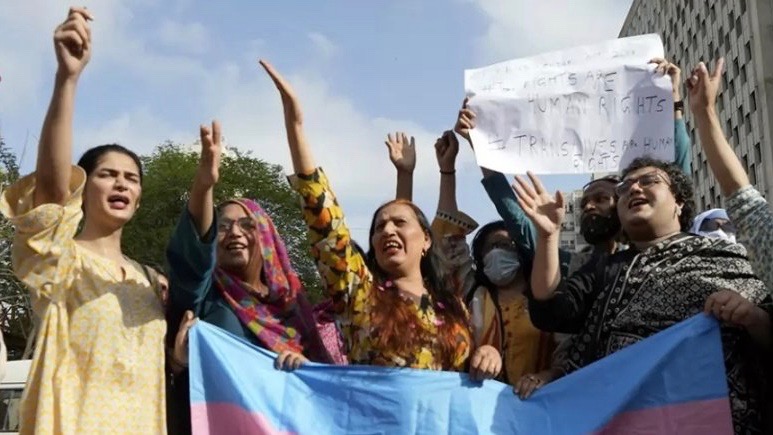The transgender community in Pakistan is gearing up to appeal to the Supreme Court for a review of the decision of the Federal Shariat Court of Islamabad on May 19, revoking sections of the Transgender Persons (Protection of Rights) Act, 2018.
Acting Chief Justice Syed Muhammad Anwar and Justice Khadim Hussain, while delivering the ruling, stated that sections 2(f), 3, and 7 of the law were against Islamic teachings. The ruling said that the gender of a person must conform to their biological sex, not their feelings or self-perception.
President of the Transgender Rights Consultants Pakistan (TRCP), Zara Naz, has issued an open call for action and invited the “Federal Government, the Province, and the People of Pakistan to stand with us against this great and historic injustice.”
Also expressing concern over the ruling, the Human Rights Commission of Pakistan tweeted “In denying trans persons the right to self-perceived gender identity, this move seeks erasure of an entire demographic and its fundamental rights.”
The Transgender Persons (Protection of Rights) Act, 2018 was considered a groundbreaking achievement in securing much needed protections for the transgender community in Pakistan. It gave legal gender-recognition to the transgender community and protected them against discrimination in education and employment. It also allowed the country’s national database and registration authority to permit the change of a person’s biological gender from the one they were assigned at birth.
In its ruling, the Shariat court stated that Islam acknowledges the existence of people born with mixed or ambiguous genitalia, and that they should be entitled to all the fundamental rights provided in the constitution of Pakistan. However, the court said that a person cannot alter their gender based on their “innermost feeling” or “self-perceived identity” and must comply with the biological sex assigned to them at birth.
The court is a mandatory cross examination body that filters out laws passed in parliament for any contradiction with Sharia (religious) laws.
Amnesty stated that “some of the observations made by the Court were based on presumptive scenarios rather than empirical evidence. The denial of essential rights of transgender and gender diverse persons should not be guided by assumptions rooted in prejudice, fear and discrimination.”
Responding to the verdict, transgender entrepreneur Sora Imran said, “Ours is a 4000-year-old community. We have existed, as a distinct gender diverse people, since Antiquity. It was only when the British arrived in the Indian Sub-continent that we became the objects of humiliation and relentless discrimination. In 1871, laws such as the Criminal Tribes Act were promulgated to drive our community towards extinction. And yet, we prevailed. In 2023, the Federal Shariat Court fulfilled the colonial project of delegitimizing our very existence. And we will prevail yet again.”





